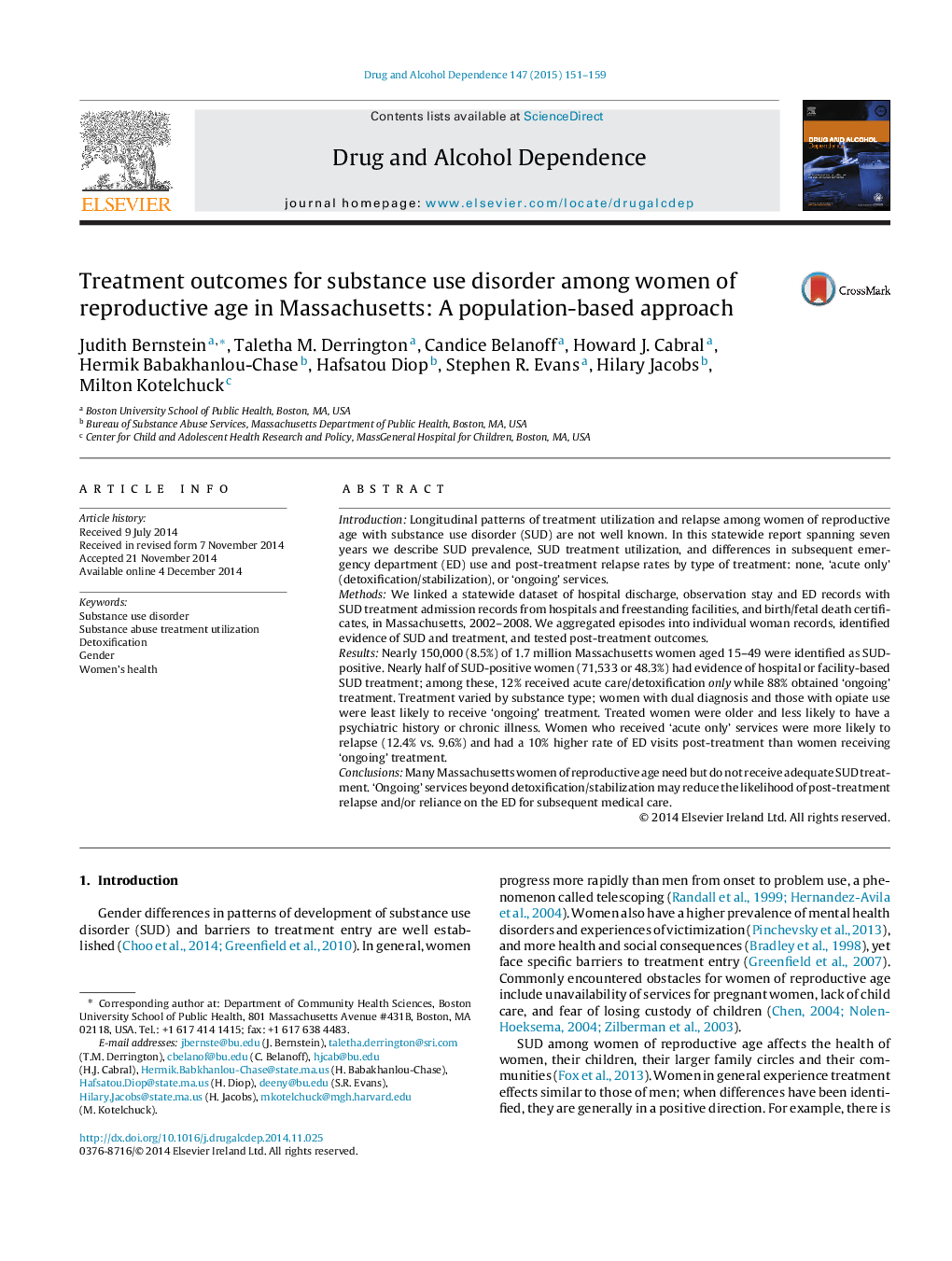| کد مقاله | کد نشریه | سال انتشار | مقاله انگلیسی | نسخه تمام متن |
|---|---|---|---|---|
| 1069884 | 1486144 | 2015 | 9 صفحه PDF | دانلود رایگان |
• In a multi-source data set, 8.5% of 1,728,748 Massachusetts (MA) women 15–49 were substance use disorder (SUD)-positive.
• Half of the SUD positive women (48.3%) received SUD treatment.
• 12% of those treated received ‘acute only’ care (detoxification/stabilization).
• Women with opiate use were least likely to receive ‘ongoing’ treatment.
• ‘Acute only’ care was associated with relapse and increased emergency department (ED) utilization.
IntroductionLongitudinal patterns of treatment utilization and relapse among women of reproductive age with substance use disorder (SUD) are not well known. In this statewide report spanning seven years we describe SUD prevalence, SUD treatment utilization, and differences in subsequent emergency department (ED) use and post-treatment relapse rates by type of treatment: none, ‘acute only’ (detoxification/stabilization), or ‘ongoing’ services.MethodsWe linked a statewide dataset of hospital discharge, observation stay and ED records with SUD treatment admission records from hospitals and freestanding facilities, and birth/fetal death certificates, in Massachusetts, 2002–2008. We aggregated episodes into individual woman records, identified evidence of SUD and treatment, and tested post-treatment outcomes.ResultsNearly 150,000 (8.5%) of 1.7 million Massachusetts women aged 15–49 were identified as SUD-positive. Nearly half of SUD-positive women (71,533 or 48.3%) had evidence of hospital or facility-based SUD treatment; among these, 12% received acute care/detoxification only while 88% obtained ‘ongoing’ treatment. Treatment varied by substance type; women with dual diagnosis and those with opiate use were least likely to receive ‘ongoing’ treatment. Treated women were older and less likely to have a psychiatric history or chronic illness. Women who received ‘acute only’ services were more likely to relapse (12.4% vs. 9.6%) and had a 10% higher rate of ED visits post-treatment than women receiving ‘ongoing’ treatment.ConclusionsMany Massachusetts women of reproductive age need but do not receive adequate SUD treatment. ‘Ongoing’ services beyond detoxification/stabilization may reduce the likelihood of post-treatment relapse and/or reliance on the ED for subsequent medical care.
Journal: Drug and Alcohol Dependence - Volume 147, 1 February 2015, Pages 151–159
